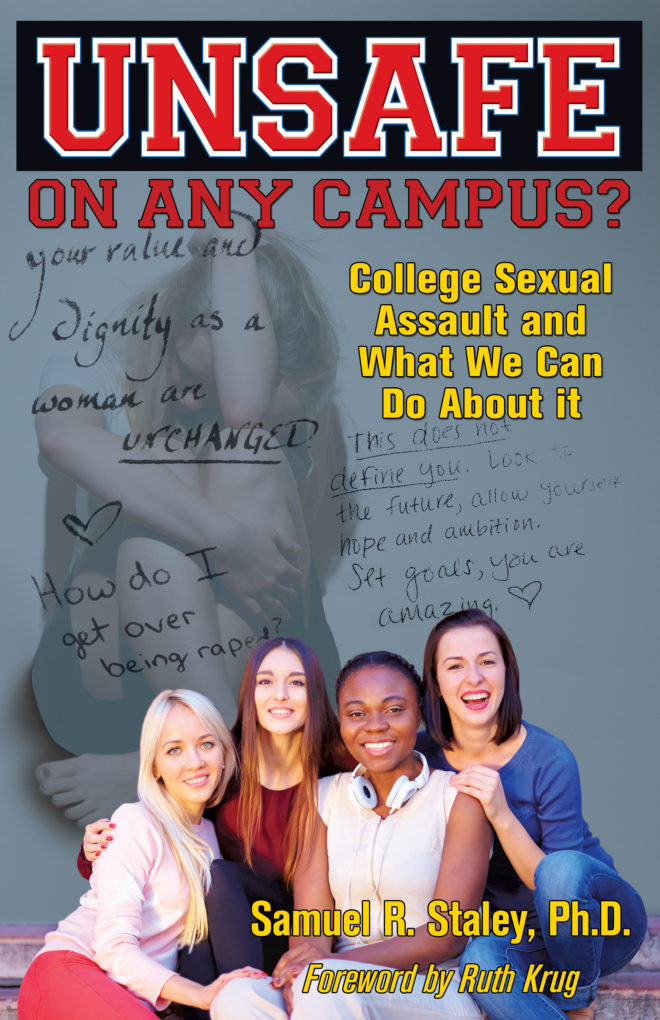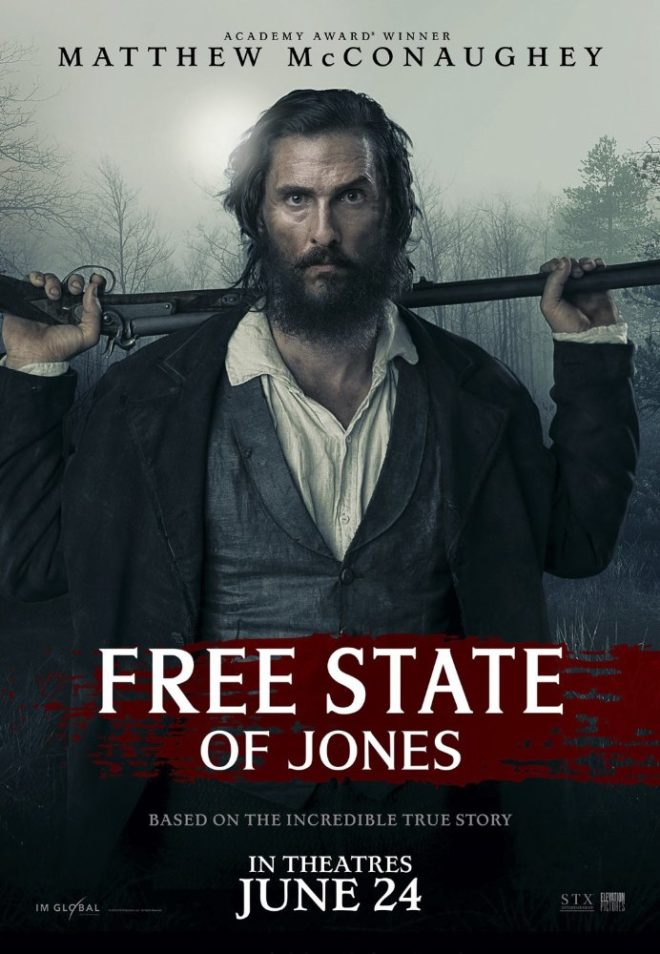John R. Graham • Thursday, September 8, 2016 •
 The best measurement of people who lack health insurance, the National Health Interview Survey published by the Centers for Disease Control and Prevention (CDC), has released early estimates of health insurance for all fifty states and the District of Columbia in the first quarter of 2016. There are three things to note.
The best measurement of people who lack health insurance, the National Health Interview Survey published by the Centers for Disease Control and Prevention (CDC), has released early estimates of health insurance for all fifty states and the District of Columbia in the first quarter of 2016. There are three things to note.
First: 70.2 percent of residents, age 18 to 64, had “private health insurance” (at the time of the interview) in the first quarter of this year, which is the same rate as persisted until 2006. Obamacare has not achieved a breakthrough in coverage. It has just restored us to where we were a decade ago. Further, the contribution of Obamacare’s exchanges to this recovery is almost trivial, covering only four million people.
What has really happened is a restoration of employer-based benefits as we have slowly clawed our way out of recession: 61.2 million people had non-exchange private insurance in Q1 2010. This included both employer-based benefits and the pre-Obamacare market for individual health insurance. By Q1 2016, this had increased to 66 million. Because most in the pre-Obamacare individual market have shifted into Obamacare exchange coverage, the increase in employer-based coverage would be close to eight or nine million.
Robert Higgs • Wednesday, September 7, 2016 •
 Ruling elites have three basic ways to keep the subject population under their thumb: threaten, bribe, and bamboozle. Everything they do is a variant of one of these basic actions. So, if the lush, misleading overgrowth were cut away, all government activities could be undertaken by only three departments: the Department of Cops and Soldiers; the Department of Santa Claus; and the Department of Delusion. However, if such a drastic, visible simplification were undertaken, the efficacy of the bamboozlement would be greatly diminished. It would be a public disservice to load more truth on the public than it can stand.
Ruling elites have three basic ways to keep the subject population under their thumb: threaten, bribe, and bamboozle. Everything they do is a variant of one of these basic actions. So, if the lush, misleading overgrowth were cut away, all government activities could be undertaken by only three departments: the Department of Cops and Soldiers; the Department of Santa Claus; and the Department of Delusion. However, if such a drastic, visible simplification were undertaken, the efficacy of the bamboozlement would be greatly diminished. It would be a public disservice to load more truth on the public than it can stand.
Much of what the government does ostensibly to carry out some valuable purpose (e.g., assisting the deserving poor, the sick, the struggling millionaire farmers, the domestic sellers facing allegedly unfair import competition, the sober college students, the elderly, people suffering ethnic or racial discrimination; protecting the nation against menacing foreigners and aliens from outer space; containing disastrous global warming; promoting a cleaner, healthier environment; undertaking or subsidizing scientific and technological research) amounts to specific forms of bribery, to buying people’s loyalties by giving them a portion of the loot the government acquires by means of its threats of enforcement and its bamboozlement in regard to the subjects’ “civic duty” to cough up taxes as the government stipulates. The state’s organizational complexity and its associated pragmatic and ideological veils prevent the general public from seeing what is really going on and then, perhaps, opposing it or becoming more recalcitrant in complying with government edicts and demands for tribute, thereby throwing sand in the state’s machinery of oppression and plunder.
As an exercise, you might test the TBB (threaten, bribe, bamboozle) hypothesis. See if you can find any significant government activity that does not fit under one or more of these three rubrics.
Samuel R. Staley • Tuesday, September 6, 2016 •

Brock Turner, the Stanford University student convicted of sexual assault last summer, left jail after serving three months of his six month sentence, setting off a firestorm of outrage and protest in the popular media over his light sentence. Amidst the rage, no one seems to be asking the more important and fundamental question: what purpose would a longer sentence serve? The evidence, and the nature of his assault, suggest it wouldn’t do much.
Prosecutors attempted to paint Turner as a predator, a menace to society, but based on the publicly available evidence Turner seems more like an immature teen unable to handle the freedoms and responsibilities that come with being an independent adult. I am unaware of any evidence of prior accusations of rape. Most of the “evidence” of predation that readers have pointed me to have been articles that report instances of an inebriated Turner aggressively trying to pick up women at parties, groping them, grinding while dancing, and engaging in other obnoxious, lewd, and inappropriate behavior. Offensive? Absolutely. Sexual assault? Yes, with certainty. Rape? Not in the details that have been publicly revealed.
I’ve asked many good students who have been seniors in my classes why their GPA hovers around a C average, and their reply all too often is: “I made poor choices as a freshman.” They may have been lucky. In Turner’s case, the consequence of not coming to grips with progressively abhorrent behavior was a criminal trial, conviction, jail time, a permanent ban from the sport that got him into Stanford, lifetime registration as a sex offender, and the knowledge that he came close to destroying another human being and damaged many others along the way.
John R. Graham • Tuesday, September 6, 2016 •
 Of all the false economies the Obama administration touted in favor of the 2010 Affordable Care Act, the latest claim is a whopper. According to a paper published by the U.S. Department of Health & Human Services in August, states which expanded Medicaid dependency experienced lower premiums for individual health insurance offered in Obamacare exchanges than states which did not expand Medicaid—seven percent lower premiums. In fact, the increase in Medicaid dependency is a growing burden on taxpayers, while Obamacare’s exchanges are dwindling into deserved obscurity.
Of all the false economies the Obama administration touted in favor of the 2010 Affordable Care Act, the latest claim is a whopper. According to a paper published by the U.S. Department of Health & Human Services in August, states which expanded Medicaid dependency experienced lower premiums for individual health insurance offered in Obamacare exchanges than states which did not expand Medicaid—seven percent lower premiums. In fact, the increase in Medicaid dependency is a growing burden on taxpayers, while Obamacare’s exchanges are dwindling into deserved obscurity.
Some background: Medicaid is a fully subsidized welfare program, funded by taxpayers through both federal and state governments, which provides health benefits to low-income residents. As written in 2010, the Affordable Care Act forced states to increase the number of people on Medicaid, by increasing the income limit for eligibility. Health insurance offered in Obamacare’s exchanges is purchased by people above the Medicaid income limit, with a mix of their own money plus refundable tax credits.
When the law was passed, the Congressional Budget Office estimated the number of people dependent on Medicaid would increase to 52 million this year, an increase from 35 million if the law had not passed. It estimated the number of people enrolled in Obamacare exchange plans would be 21 million.
Samuel R. Staley • Thursday, September 1, 2016 •

Guns for self defense figure prominently in the Civil War period drama “Free State of Jones”
In a pivotal scene in the film Free State of Jones, three white men are chasing the recently freed slave Moses down a dirt road in immediate post-Civil War Mississippi. What is notably missing from Moses’s hands is a gun, a symbolic feature embedded so thoroughly in the narrative of the film that it could be considered a pivotal supporting player. The next scene shows Moses’s feet dangling in mid-air after he has been lynched for his “crime” of registering free blacks to vote.
From my vantage point in the movie theater, this sequence dramatically showed the civil rights foundation for the Second Amendment, or at least an artistic validation of the main theme behind books such as Stephen Halbrook’s Securing Civil Rights: Freedmen, the Fourteenth Amendment and the Right to Bear Arms. This is all the more remarkable because, from what I can tell, nothing in the background of the actors, producers, director, or screenwriters suggests they are vocal Second Amendment advocates (although I could be wrong and invite readers to shed any light they may have on this). From the director’s point of view, I am sure these sequence are intended to show the human consequences of the terrorism unleashed upon African-Americans as whites established American apartheid in the South after emancipation through Jim Crow laws.
The scene contrasts stylistically and artistically with another movie now playing in theaters: AmeriGeddon. The film, directed by veteran actor Mike Norris, is the son of well-known conservative actor/producer/martial artist Chuck Norris. The film was produced by and features Gary Heavin, a Texas businessman and Ernst & Young Entrepreneur of the Year (2004) who began producing “movies that make a difference.” Presumably that means conservative in focus and theme.
Robert Higgs • Thursday, September 1, 2016 •
 The idea that genuine self-government—the system in which individuals contract for the type of governance they prefer—must fail because under such a system no one can make others obey the rules is stunningly misconceived. On any given day, even in a world pervaded by states and their dictates, nearly everything that people do or refrain from doing is so not because the state threatens them with violence for acting otherwise, but because they find conformity with rules—honesty, promise keeping, careful handling of goods, avoidance of opportunism, working hard and responsibly, refraining from shirking and malingering, and so forth—to be in their interest. The world does not run on the state’s threats of violence; it runs in spite of those threats. Notwithstanding the supercilious declaration that “you didn’t build that,” you actually did, and not because the state threatened to hurt you if you didn’t.
The idea that genuine self-government—the system in which individuals contract for the type of governance they prefer—must fail because under such a system no one can make others obey the rules is stunningly misconceived. On any given day, even in a world pervaded by states and their dictates, nearly everything that people do or refrain from doing is so not because the state threatens them with violence for acting otherwise, but because they find conformity with rules—honesty, promise keeping, careful handling of goods, avoidance of opportunism, working hard and responsibly, refraining from shirking and malingering, and so forth—to be in their interest. The world does not run on the state’s threats of violence; it runs in spite of those threats. Notwithstanding the supercilious declaration that “you didn’t build that,” you actually did, and not because the state threatened to hurt you if you didn’t.
Many sanctions besides violence and threats of violence may be—and are even in the world in which we now live—effective incentives for adherence to law and order. Ostracization of dishonest dealers, for example, works wonders, and in the world of modern communications it can be more effective than ever. Many people conduct their affairs honorably and fairly in order to preserve an upstanding reputation and thereby to retain beneficial commercial and personal relations. Many people subscribe to religious or other moral codes that regulate their conduct and direct it into decent and productive channels. The state’s contribution to creating a successful world is, as a rule, to stand in the way and, all too often, to punish those who are trying to serve their fellow human beings in free markets and other peaceful, cooperative arrangements.
Robert P. Murphy • Wednesday, August 31, 2016 •
In a recent blog post, Bryan Caplan favorably quoted David Friedman, who claimed in his book Hidden Order that economists believed that everything—including happiness—can be measured in money, or in units of anything else, for that matter. Friedman and Caplan are deliberately trying to jolt the reader, but they believe the claim is defensible once put into context. Ironically, the Austrian economist Ludwig von Mises explicitly denied this viewpoint, arguing that subjective value by its nature cannot be measured. In this post I’ll explain Friedman’s position, and then show why Mises would have criticized it.
Carl P. Close • Wednesday, August 31, 2016 •
Fifty years from now innovations in technology and commerce will have brought tremendous progress in the material well-being of people from all income levels, but a world of widespread prosperity is not a sure thing: Although unlikely, taxation, regulation, cronyism, and/or public hostility to wealth creation could greatly undermine or even eviscerate the ability and willingness of entrepreneurs and businesses to deliver life-enhancing advancements to the marketplace.
This message of “cautious optimism” is a major theme of the new book, Future: Economic Peril or Prosperity?, edited by economists Robert M. Whaples, Christopher J. Coyne, and Michael C. Munger.
“The question is whether our economic future will be one of prosperity or one of peril,” says Whaples. “The contributors to this book answer in the affirmative—most likely it will be one of prosperity, but there are many perils lurking. And we all have a say in the matter—individually and in the policies enacted by those we elect.”
Mary L. G. Theroux • Wednesday, August 31, 2016 •
The End of Tech-Friendly Ireland? DUBLIN, August 31—This is turning out to be quite a fascinating week to be in Ireland.
Everywhere one goes in Dublin, there are commemorative posters, exhibits at every museum, and year-long special events marking the centennial of the 1916 Easter Rebellion, when Irish republicans rose up to fight the British for independence. Quickly and brutally squashed, the Rebellion was nevertheless a watershed for the cause: Britain’s summary executions of the rebellion’s participants and harsh reprisals following turned the tide of Irish public opinion, with the separatist Sinn Féin party sweeping the 1918 elections, leading to full independence four years later.
Today, “New Dublin” is bustling, both sides of its river teeming with cranes adding to the already glittering corporate headquarters of America’s brand names: on one side, the financial services giants; on the other, a veritable Silicon Valley annex, home to the European headquarters of every tech firm—from Apple, to Google, Facebook, Twitter, Airbnb, and more.
Robert Higgs • Wednesday, August 31, 2016 •
 Sometimes when I criticize something maintained by a great intellectual such as Ludwig von Mises, people respond on social media by writing shorthand comments such as “Mises > Higgs.” This is silly. Am I the intellectual equal of Mises? Of course not. I would be an idiot to suppose I am. However, my overall intellectual inferiority does not imply that when I disagree with him on a specific point, I am always the one who is wrong.
Sometimes when I criticize something maintained by a great intellectual such as Ludwig von Mises, people respond on social media by writing shorthand comments such as “Mises > Higgs.” This is silly. Am I the intellectual equal of Mises? Of course not. I would be an idiot to suppose I am. However, my overall intellectual inferiority does not imply that when I disagree with him on a specific point, I am always the one who is wrong.
Am I the intellectual equal of Einstein? The question is ludicrous. Yet on certain matters where Einstein and I differ, he was clearly the one who was wrong. I can explain—I believe, quite convincingly—why socialism is an arrangement wholly unsuited for the attainment of the objectives that well-intentioned socialists such as Einstein believed it would attain. Einstein simply did not know much about economics, however great a physicist he surely was.
 The best measurement of people who lack health insurance, the National Health Interview Survey published by the Centers for Disease Control and Prevention (CDC), has released early estimates of health insurance for all fifty states and the District of Columbia in the first quarter of 2016. There are three things to note.
The best measurement of people who lack health insurance, the National Health Interview Survey published by the Centers for Disease Control and Prevention (CDC), has released early estimates of health insurance for all fifty states and the District of Columbia in the first quarter of 2016. There are three things to note. Ruling elites have three basic ways to keep the subject population under their thumb: threaten, bribe, and bamboozle. Everything they do is a variant of one of these basic actions. So, if the lush, misleading overgrowth were cut away, all government activities could be undertaken by only three departments: the Department of Cops and Soldiers; the Department of Santa Claus; and the Department of Delusion. However, if such a drastic, visible simplification were undertaken, the efficacy of the bamboozlement would be greatly diminished. It would be a public disservice to load more truth on the public than it can stand.
Ruling elites have three basic ways to keep the subject population under their thumb: threaten, bribe, and bamboozle. Everything they do is a variant of one of these basic actions. So, if the lush, misleading overgrowth were cut away, all government activities could be undertaken by only three departments: the Department of Cops and Soldiers; the Department of Santa Claus; and the Department of Delusion. However, if such a drastic, visible simplification were undertaken, the efficacy of the bamboozlement would be greatly diminished. It would be a public disservice to load more truth on the public than it can stand.
 Of all the false economies the Obama administration touted in favor of the 2010 Affordable Care Act, the latest claim is a whopper. According to a
Of all the false economies the Obama administration touted in favor of the 2010 Affordable Care Act, the latest claim is a whopper. According to a 
 The idea that genuine self-government—the system in which individuals contract for the type of governance they prefer—must fail because under such a system no one can make others obey the rules is stunningly misconceived. On any given day, even in a world pervaded by states and their dictates, nearly everything that people do or refrain from doing is so not because the state threatens them with violence for acting otherwise, but because they find conformity with rules—honesty, promise keeping, careful handling of goods, avoidance of opportunism, working hard and responsibly, refraining from shirking and malingering, and so forth—to be in their interest. The world does not run on the state’s threats of violence; it runs in spite of those threats. Notwithstanding the supercilious declaration that “you didn’t build that,” you actually did, and not because the state threatened to hurt you if you didn’t.
The idea that genuine self-government—the system in which individuals contract for the type of governance they prefer—must fail because under such a system no one can make others obey the rules is stunningly misconceived. On any given day, even in a world pervaded by states and their dictates, nearly everything that people do or refrain from doing is so not because the state threatens them with violence for acting otherwise, but because they find conformity with rules—honesty, promise keeping, careful handling of goods, avoidance of opportunism, working hard and responsibly, refraining from shirking and malingering, and so forth—to be in their interest. The world does not run on the state’s threats of violence; it runs in spite of those threats. Notwithstanding the supercilious declaration that “you didn’t build that,” you actually did, and not because the state threatened to hurt you if you didn’t. Sometimes when I criticize something maintained by a great intellectual such as Ludwig von Mises, people respond on social media by writing shorthand comments such as “Mises > Higgs.” This is silly. Am I the intellectual equal of Mises? Of course not. I would be an idiot to suppose I am. However, my overall intellectual inferiority does not imply that when I disagree with him on a specific point, I am always the one who is wrong.
Sometimes when I criticize something maintained by a great intellectual such as Ludwig von Mises, people respond on social media by writing shorthand comments such as “Mises > Higgs.” This is silly. Am I the intellectual equal of Mises? Of course not. I would be an idiot to suppose I am. However, my overall intellectual inferiority does not imply that when I disagree with him on a specific point, I am always the one who is wrong.




